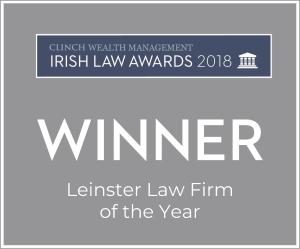According to Section 117 (1) of the Succession Act 1965 when contesting the Will of a parent a child must show that the ‘testator (in this case the parent) has failed in his/her moral duty to make proper provision for the child in accordance with his/her means’. What is meant by ‘moral duty to make proper provision’ has been tested a number of times by the High Court and the law is now well defined.

These are the 7 things you need to consider:
1. Time limits
The time limits in probate litigation are incredibly tight. Proceedings must be brought within six months from the issue of the Grant of Probate. This time frame is strictly adhered to and will not be extended by the Courts for any reason.
2. What is a Child?
A Child for this purpose can be of any age and is not based on a child under the age of 18. The test in deciding whether provision should be made, is not whether the child is a dependent, but whether the Testator has failed in their moral duty to make proper provision.
3. What is Moral Duty?
The ‘Moral Duty’ a parent owes to a child will depend on the individual circumstances of each case. The relationship of parent and child does not itself, and without regard to other circumstances, create a moral duty to leave anything by Will to the child. The ‘Moral Duty’ of a parent may also have been discharged during their life time and in this regard, educational costs, gifts or settlements made by the parent during their life time may be taken into account.
4. The Onus of Proof lies with the Child.
It is up to the applicant (the child contesting the Will) to prove their case. The onus of proof placed on the applicant for relief under Section 117 is high and it requires the applicant to establish that their was a positive failure by their parent in fulfilling their moral duty.
5.Testator’s Obligation
There is no obligation on a parent to leave something to each child. Their only obligation is to discharge their moral duty to their children. A just parent may take into account not just their moral obligations to his children and to his wife, but all their moral obligations, such as obligations they may have to aged and infirm parents.
6. Special Circumstance’s
Special circumstances may alter a parents moral duty to a child. For example, the moral duty a parent has to a child, my change in circumstances where the child was induced in to believing by working in the family business he would ultimately become the owner. Other special circumstances may arise if the child had mental or special disabilities.
7 The Power of the Court
While the Court has wide ranging powers in section 117 application, it is not for the Court to draft a new Will. The Courts duty is only to decide whether the Testator breached their moral duty to the plaintiff (child)
For further information on Contesting a Will or if you have any questions please feel free to Contact Us
Hanahoe and Hanahoe solicitors is an award winning law firm with a particular expertise is probate litigation. *For further information on contesting a Will please see our previous article ‘Challenging A Parents Will – What Is A Section 117 Application?’ or please do not hesitate to contact Hanahoe and Hanahoe solicitors at our Naas Office on 045 897784, at our Dublin office on 01 5255637 or at info@hanahoeandhanahoe.com. or on Facebook.
This article is merely for information purposes and is not and should not be taken as legal advice. If you have any queries in relation to this or any other aspect of probate litigation, you should contact us. No solicitor/client relationship or duty of care or liability of any nature exists between you and Hanahoe and Hanahoe solicitors and you, until you receive written confirmation that we are acting as solicitors on your behalf.
*In contentious business a solicitor may not calculate fees or other charges as a percentage or proportion of any award or settlement.




